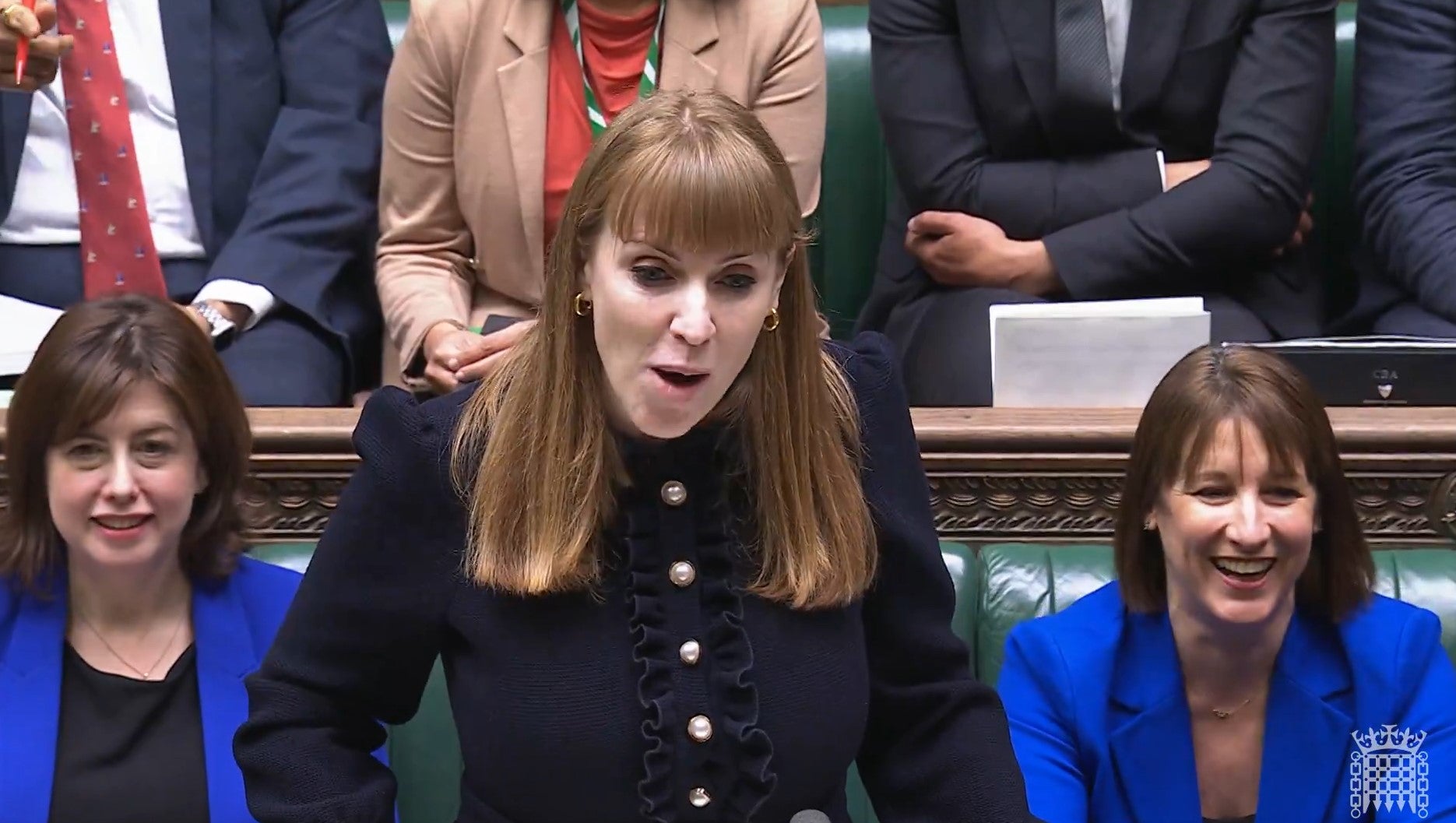Angela Rayner refuses to rule out further increases to inheritance tax on farmers
It comes after an estimated 13,000 people descended on London on Tuesday, urging the government to U-turn on the tax
Your support helps us to tell the story
From reproductive rights to climate change to Big Tech, The Independent is on the ground when the story is developing. Whether it's investigating the financials of Elon Musk's pro-Trump PAC or producing our latest documentary, 'The A Word', which shines a light on the American women fighting for reproductive rights, we know how important it is to parse out the facts from the messaging.
At such a critical moment in US history, we need reporters on the ground. Your donation allows us to keep sending journalists to speak to both sides of the story.
The Independent is trusted by Americans across the entire political spectrum. And unlike many other quality news outlets, we choose not to lock Americans out of our reporting and analysis with paywalls. We believe quality journalism should be available to everyone, paid for by those who can afford it.
Your support makes all the difference.Angela Rayner has failed to rule out any further inheritance tax raids on farmers, despite thousands of people marching on Westminster on Tuesday to protest the levy.
Asked to rule out any further increases to the tax while she was standing in for Sir Keir Starmer at Prime Minister’s Questions, Ms Rayner declined to do so – instead claiming “the vast majority of estate owners will be totally unaffected” by the new levy.
In response, Tory MP Alex Burghart - who was standing in for Kemi Badenoch - joked: “Perhaps the right honourable lady thinks that everyone came to London yesterday to thank the government.”
The shadow chancellor of the Duchy of Lancaster said: “Let’s look at the facts. A typical mid-size 360 acre family farm in the constituency of Thirsk and Molten, they have spoken to their accountant, their new liability because of this government is half a million pounds.
“That is 12 years’ worth of profit. When this generation passes away, that farm will become totally unviable and it is just one of thousands and thousands of similar farms. It is clear that government hasn’t got its facts right.”

He added: “If the government isn’t going to reverse this terrible policy, will the right honourable lady at least commit that there will be no further increases to inheritance tax and no further reductions to agricultural property relief or business property relief in this parliament?”
Responding, Ms Rayner told the Commons: “He talks about the facts and I absolutely stand by the figures the government has set out and the vast majority of estate owners will be totally unaffected.”
Treasury data shows that around three-quarters of farmers will pay nothing in inheritance tax as a result of the controversial changes.
But farmers have challenged the figures, pointing instead to data from Defra which suggests 66 per cent of farm businesses are worth more than the £1m threshold at which a 20 per cent inheritance tax will now need to be paid.
The deputy prime minister stood in for Sir Keir as he travelled back from Brazil, where he spent two days at the G20 summit in Rio de Janeiro.
Mr Burghart said he spoke to “elderly men in tears, children worried about their parents, all of them worried that their way of life is about to be destroyed” at Tuesday’s protest.
“What would the right honourable lady like to say to them?”, he asked Ms Rayner.
The deputy prime minister was booed by MPs in the Commons as she responded: “We are absolutely committed to our British farmers and that is why we have committed £5bn to the farming budget over the next two years.”

Tuesday’s protest saw TV personality Jeremy Clarkson urge the government to back down over the policy, saying it is a “hammer blow to the back of the head” for the agricultural industry.
He begged the government to “accept this was rushed through, wasn’t thought out, and was a mistake.”
Meanwhile, Ms Badenoch promised to reverse the policy if her party wins the next election, describing it as “cruel and wrong”.
But in a joint statement with environment secretary Steve Reed on Monday, chancellor Rachel Reeves defended the policy, insisting the government had taken difficult decisions to fix gaps in the public finances.
“We recognise the strength of feeling expressed by farming and rural communities in recent weeks,” the statement said. “We are steadfast in our commitment to Britain’s farming industry because food security is national security.
“It’s why we are investing £5bn into farming over the next two years – the largest amount ever directed towards sustainable food production, rural economic growth and nature’s recovery in our country’s history.”

Join our commenting forum
Join thought-provoking conversations, follow other Independent readers and see their replies
Comments